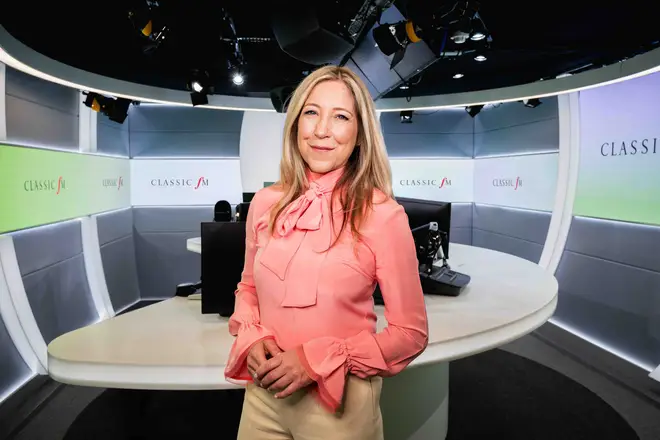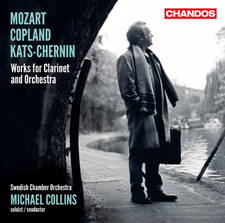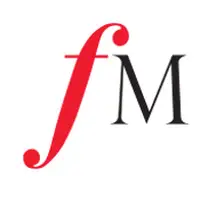Joanna Gosling reveals her 10 favourite pieces of classical music
19 June 2024, 15:58

Classic FM’s Joanna Gosling shares the pieces of music closest to her heart, from roaring symphonies to fantastical film themes.
Listen to this article
Radio has always been Joanna Gosling’s first love, and classical music, a longtime passion.
Every Sunday afternoon, you can find the much-loved broadcaster on Classic FM sharing some of her favourite music including her Sunday Symphony – a symphony she loves, and thinks that you might, too.
When she joined Classic FM in June 2023, Joanna said: “After 30 years of news, it’s exciting and lovely to be doing something more uplifting. And it takes me back to my broadcasting roots of live radio!”
Let’s explore her favourite pieces...
-
Handel – The Arrival of the Queen of Sheba
“I always liked this piece but it got elevated to love when it came on my playlist, serendipitously, at the moment I drove through the gates of the farm where I was collecting our new puppy to bring her home. We’d already named her Sunny, and for me, The Arrival of the Queen of Sheba is my sunshine anthem that just makes me happy.”

Handel: Arrival of the Queen of Sheba | Academy of Ancient Music
-
Beethoven – Symphony No.5
“This commands attention from those iconic opening notes of the 1st movement, and I love it for its brilliance and the context behind it. Beethoven was going deaf, and progressively more so over the 4 years it took him to write it, starting in 1804. 10 years later, he would be completely deaf. As he wrote, he was grappling, not just with the practical frustration of losing his hearing, but what it meant for his great joy and purpose – music. He is said to have alluded to that by describing the dramatic opening notes as ‘the sound of fate, knocking at the door’.”

Beethoven’s Fifth Symphony as a body percussion epic played by hundreds of schoolchildren
-
Mozart – Symphony No.41
“I’ve picked three Mozart pieces for my top ten – he is the OG after all. As with the Beethoven, I love this work musically and contextually. Mozart wrote three symphonies in eight weeks in the summer of 1788. No 41 proved to be his last. He was 31 as he wrote – three years before his death – he was unwell, in debt, and out of fashion and he wrote quickly, desperate to turnaround his fortunes. The finale of his 41st is sublime, and that Mozart was capable of such greatness at his lowest ebb blows my mind.”

Mozart: Symphony No. 41 Jupiter | Hartmut Haenchen & Carl Philipp Emanuel Bach Chamber Orchestra
-
Elgar – Cello Concerto in E minor (performed by Jacqueline du Pré)
“This beautiful work by Elgar became the signature piece of Jacqueline du Pre when she stunned audiences with her performance of it at the age of 20. Elgar’s writing here is exquisite and full of yearning. Knowing the tragic story of Jacqueline du Pré, it feels so appropriate that this was her piece and I find it almost unbearably moving to listen to. A good one for a reflective moment, and appropriately it’s one of my Stop the Clock pieces.”

ELGAR CELLO CONCERTO, JACQUELINE DU PRE
-
Monti – Czardas (played by Nemanja Radulovic)
“For me, this is a standout piece I want to listen to because of the combination of composition and artist. The piece without the player wouldn’t make my top 10, but Nemanja Radulovic brings a magic to it that makes me marvel and feel joy. You don’t have to know anything about him to understand he is a bit of a maverick. Just listen to hear his style and energy punch through spectacularly.”

Monti's Czárdás, played by The Kanneh-Masons
-
Dvořák – Symphony No.9 ‘From the New World’
“My pick is the fourth movement of this symphony, because it makes me smile and and fills my heart with pleasure and a surging optimism from the first note. And by the way, those first notes can’t be heard without the echo of a much later cultural reference resonating (I’ll leave you to listen for yourself to hear what I mean).
This piece is known as the New World Symphony, because Dvořák wrote it while living and working in America. Again, I love the context. The Czech composer enjoyed the status of a rock star, and his adoring fans queued around the block for the symphony’s premiere at New York’s Carnegie Hall in December 1893. They responded with riotous ovations after each movement.”

Dvořák: Symphony No. 9 "From the New World" / Karajan · Berliner Philharmoniker
-
Mozart – Queen of the Night’s Aria (The Magic Flute)
“Hearing this piece for the first time – I can’t remember how or exactly when, but sometime around my late teens or early 20s – was like being plugged into the electric socket of opera and so began a quiet love of it. It’s mostly been a solitary pleasure, and that aspect of hugging it to myself has been part of my enjoyment. Over time I realised going solo to the opera is a thing, and I like thinking I’m part of a crowd who feel that way.”

Soprano Rainelle Krause flawlessly sings Mozart’s ‘Queen of the Night’ aria UPSIDE DOWN
-
Mozart – Requiem
“Another of those pieces where the first listen was revelatory and hit deep. I heard this for the first time watching the movie Amadeus as a teenager. The talent, the drama, the angst – catnip. Funnily enough, this was more my angsty-jam than The Smiths back in the 1980s. The way this resonates deep in the soul is beautiful.”

Mozart : Requiem (Orchestre national de France / James Gaffigan)
-
Max Richter – November
“My middle daughter introduced me to this piece. The first time I heard it, I found the opening violin so intense I might have switched off, if not for her recommendation. I’m so glad I kept listening, because I genuinely love it, although part of that is naturally intertwined with its provenance for me.”

Mari Samuelsen – Max Richter: November (Live from the Forbidden City, Beijing / 2018)
-
Alexandre Desplat – Mr Fox in the Fields from The Fantastic Mr Fox
“A short burst of pure joy. My youngest daughter adores this and has done since she watched the movie when she was little. I love listening with her and listening when she’s not around feels like holding her hand.”

Mr. Fox in the Fields














